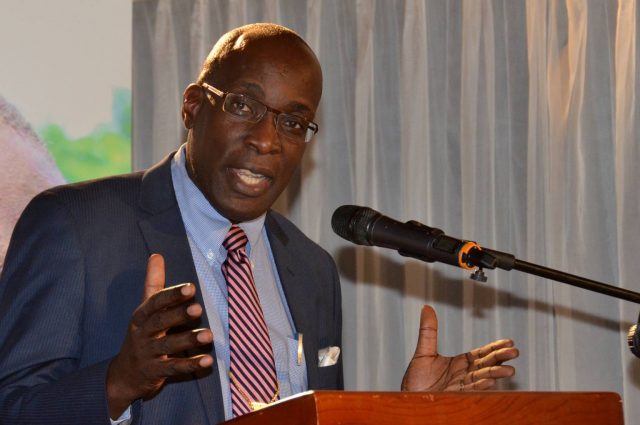The Gleaner: IN A RECENT ARTICLE, ‘The CAP doesn’t fit’, published in the In Focus section last Sunday, co-authors Franklin Johnston and Radley Reid appeared oblivious to the fact that 5,000 students currently benefit from the additional two years of secondary schooling under the Career Advancement Programme (CAP).
These students are seizing the opportunity to gain the necessary competencies and skills so they can move on to the world of work or to higher studies. The NVQ-J skills certification rate among CAP participants moved from 37 per cent in 2013 to 54 per cent in 2015.
Johnston and Reid argued that resources should, preferably, be spent on improving education outcomes at the early childhood, primary and secondary levels, including the provision of equipment and laboratory facilities. While the Ministry of Education, Youth and Information acknowledges that this is the ideal situation, the reality is that, annually, some 20,000 students exit the secondary-school system at grade 11 without adequate certification to gain employment or pursue further studies.
While this demographic may include students who were not effectively instructed during their earlier period of schooling, others are late bloomers or have special-learning needs that require them to be exposed to six or seven years of schooling up to age 18.
So, yes, the ministry will seek to reduce the number of underachieving students by providing the necessary resources, including the allocation of more than $243 million to upgrade equipment during this financial year. Furthermore, it is anticipated that the phased implementation of the New Standards Curriculum and the Alternative Pathways to Secondary Education approach this September will reduce, over time, the number of students who require mediation.
However, we underscore the point that there will always be students, based on the pace of their development, who will need an extended period of schooling at the secondary level. This is a policy emphasis of the new administration in accordance with best practices in other jurisdictions.
ADEQUATE SPACE AND RESOURCES
Johnston and Reid questioned if the ministry would find the space and adequate resources to properly deliver the programme during grades 12 and 13. The answer is yes. A total of $850 million has been allotted to CAP for the new financial year, and we will find space.
We currently have 53 institutions that are running CAP successfully. Since my announcement of the additional two years of secondary schooling, the ministry has received more than 60 additional expressions of interest. Other institutions are calling to be a part of the programme.
We should note that the enrolment at secondary level is declining and, therefore, more than 40 of these schools are operating with smaller numbers than what they had three years ago, thereby providing space for utilisation in implementing the expanded CAP. In addition, the combination of the youth and education portfolios provides additional facilities for education and training.
This means there is no need to be “forcing the shift system with all its weaknesses and failures on the already weak students,” as Johnston and Reid fear. In fact, the programme to remove schools off shift continues with six high schools and several all-age and junior high schools slated to be taken off during this financial year.
Johnston and Reid asked: “What will participants learn during the two additional years? Is it repeating, remaining static, or advancing to prosperity?”
The CAP is designed with the following features that will allow students to progress:
• Building skills through education:
• Continuing education: through grades 12 and 13.
• Apprenticeship Programme.
• Customised education and training relevant to career choices.
• Elective training in technical vocational specialisations.
• Personal development: training in life-coping skills and personal development.
• Career development: orientation to careers and selective career counselling.
• National service/corps.
It is a testament to the maturity of the political system that three different administrations have sought to incrementally improve a particular programme. Following its introduction in 2010, the Career Advancement Programme showed deficiencies. The programme was significantly improved by the succeeding administration, and now a third administration is taking it to another level. The new policy shift involves the mainstreaming of CAP as the premier TVET programme of study for the 16-18 age cohort. The ministry will be targeting more than 10,000 participants for the 2016-2017 academic year, almost doubling the number of participants during each of the last two years.
Our youth still need a CAP.
• Senator Ruel Reid is the minister of education, youth and information.


